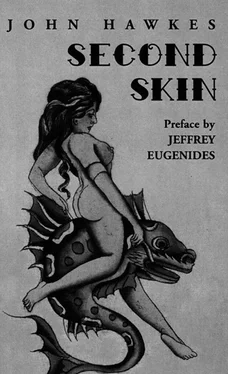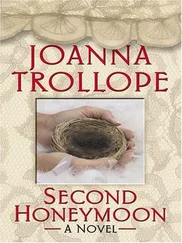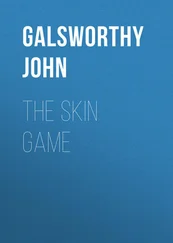For Charlotte and Edwin Honig
The Lover of the Hummingbird by Jeffrey Eugenides
This essay was read at a memorial service for John Hawkes, “Remembering The Passion Artist: A John Hawkes Tribute,” on April 13, 1999, at Brown University and is published here courtesy of the author.
Twenty years ago I arrived on this campus intent on fulfilling my father’s greatest fear (while making him pay for it) of seeing his son ruined by the Liberal Eastern Establishment. At the time, I wasn’t entirely clear what the Liberal Eastern Establishment was. If you’d have asked me to list the attributes of its members, I might have mentioned the wearing of broadcloth shirts, the tendency to have crystal decanters on the sideboard, or to speak in the manner of William Bucklcy, Jr. (no liberal but an easterner) where the facial expressions seem to arise from a convergence of intellectual effort and intestinal discomfort. One thing was certain, however. The chief recommendation of the Liberal Eastern Establishment lay in my father’s opposition to it.
I’d chosen to go to Brown chiefly because of the presence on its faculty of one John Hawkes. Hawkes’s books, which I only dimly understood, had enchanted me ever since I’d pulled my first copy off a high school teacher’s bookshelf when I was fifteen. I don’t want to be hyperbolic about the moment but it retains in memory all the annunciatory trumpets of an epiphany. I can remember reading the words “New Directions” on the spine. I can remember studying the picture on the cover, a muscular, nearly anatomized Caribbean woman posed before a blazing sun. Most of all, I remember the intoxicating effect the prose had on me, like a dangerous, throat-burning liqueur. The narrative voice seized me in a way all the noisy art forms of the time (which have only grown noisier since then) somehow didn’t. I felt right away, reading the first paragraph of Second Skin , that I was in the presence of the qualities Nabokov considered the hallmarks of art; curiosity, tenderness, kindness, ecstasy.
I set out on my pilgrimage my first day on College Hill. Consulting my campus map, I located the English department at Horace Mann. I eame inside and studied the directory. With growing excitement, I climbed the steps. Everything here was old in the way I wanted it to be; the stairs creaked; the radiators gave off a.smell of rust (the smell of the Ivy League). At the end of the hall, in a forlorn office clearly used only once at the beginning of each semester, sat a man with owl-shaped eyeglasses the color of congealed honey. He looked up at me.
“Are you the lover of the hummingbird?” I asked.
After a short pause, putting aside his insistence that one should never confuse a novel’s author with its protagonist (because he could see that such a distinction would have been lost on the kid in his doorway). Jack answered, “Yes.”
And so it was that Jaeic Hawkes became for me the living embodiment of the Liberal Eastern Elite. It turned out they didn’t wear broadcloth shirts. They wore L.L. Bean turtleneeks, ehinos and tweed jackets. They didn’t speak like William Buekley, Jr. but in a voiee, well, like Jack’s, something between an eagle’s cry and the whine of a highly intelligent, asthmatic ehild … you all know the voiee, you ean hear it now, saying the things Jaek used to say. “But what about the eharaeter’s eyes? Look how the author describes his eyes. These aren’t eyes. They’re gonads! In Freudian terms the eye is always a gonad!”
Or when he forgot somebody’s name: “It’s the synapses!”
Or regarding literary poseurs: “To glorify not the writing but the writer, to be eoneerned with the role of the writer in society rather than the work itself, that is something which, I must say, I strongly resist.”
This last remark was delivered to me. Pretty soon in our dealings with each other Jack realized that my interest in him extended beyond my admiration for his books. One day during my freshman year I came into class and sat next to Jaek. I bent over to lay my books on the floor. While I was down there, I took the opportunity to stare under Jack’s seat.
In an instant Jack was shouting, “You even want to know what kind of shoes I wear?”
I was horrified at being caught, at having my idolatry exposed. Stricken, I sat back in my scat and tried for the re.st of the seminar to look anywhere but at Jack’s shoes.
Among my pitiful efforts that first semester in Beginning Fiction, I remember one moment when Jack offered me encouragement. We were given an assignment to describe a single mundane moment with utmost dramatic effect. I had described — taxidermied, really — a little girl in the act of turning on a light switch. But generous Jack found some promise.
“I love this little girl,” he shouted. “I want to eat this girl!”
That was a lesson I’ve never forgotten: try to make every page of prose edible.
Among the most edible pages in our literature surely are those written by John Hawkes. Open any book, anywhere, and the feast is laid out before you. I’ve always agreed with Proust’s insistence that you can measure a writer’s talent from any paragraph, in any book. Just for fun, in preparing these remarks, I opened a few of Jack’s books at random. From The Cannibal: “And old Herman, fully awake, touched the soft fur with his mouth, and felt the wings through the cotton dress, while in the far end of town, a brigade of men passed shallow buckets of water to quench a small fire.” From The Blood Oranges: “I swayed, I listened, I shaded my eyes, knowing that Catherine was indeed asleep and that Fiona’s haste was justified but futile and that the light itself had turned to wind or that the wind had somehow assumed the properties of the dawn light.” From Sweet William: “There I was, standing on racing turf at last. Through the shredding curtains of that brisk dawn mirage, a fusion of fog and filmy light and dark shadows, I was able to make out the quarters of the track, as well as the darkened shape of the grandstand, which was like an abandoned ship on its side.”
Not only was Jack a wonderful writer; he was a truly first-rate hypochondriac. “Nobody has a cold, do they?” was often the way he greeted our class. If a carrier were identified, Jack quarantined the poor student in a remote armchair before administering himself the booster vaccine of a glass of Soave Folonari. Of course Jack had had asthma since childhood and needed to guard against flus and colds. Nevertheless, one of the strangest things I ever learned about Jack and something that impressed upon me how contradictory and unpredictable people can be (another literary lesson, I suppose) was the following. One of the last times I saw Jack, at a lunch with Rick Moody, Jack, a man who had fled the slightest cough or sniffle, calmly mentioned over a rich dessert that doctors had just determined that his main cardiac arteries were occluded by eighty or ninety percent. He seemed — and again I have only that one afternoon to go on — almost fascinated with the diagnosis, as though the heart trouble were not his own but belonged to a character he was writing about. And so, to all the other qualities I admired about Jack Hawkes, I had to add another: courage.
That final lunch was not without its sadder aspects. Jack was concerned about his book. The Frog , which had come out that year. He was afraid it wasn’t doing well enough to suit his publisher, and he asked Rick and me if there was anything we could do, down in New York, to give the book a boost. It was an uncomfortable moment, which I can only comparc, in my own experience, to the time my own father, late in life, asked to borrow money. It went against the natural order of things. And we were standing in the middle of a gravel parking lot, in Providence, which is always a sad thing, and Jack looked frail in the harsh light. But no sooner had this unease descended on us than Jack, synapses still intact, summed up the entire situation and, waving his hand, dismissed the whole idea.
Читать дальше












